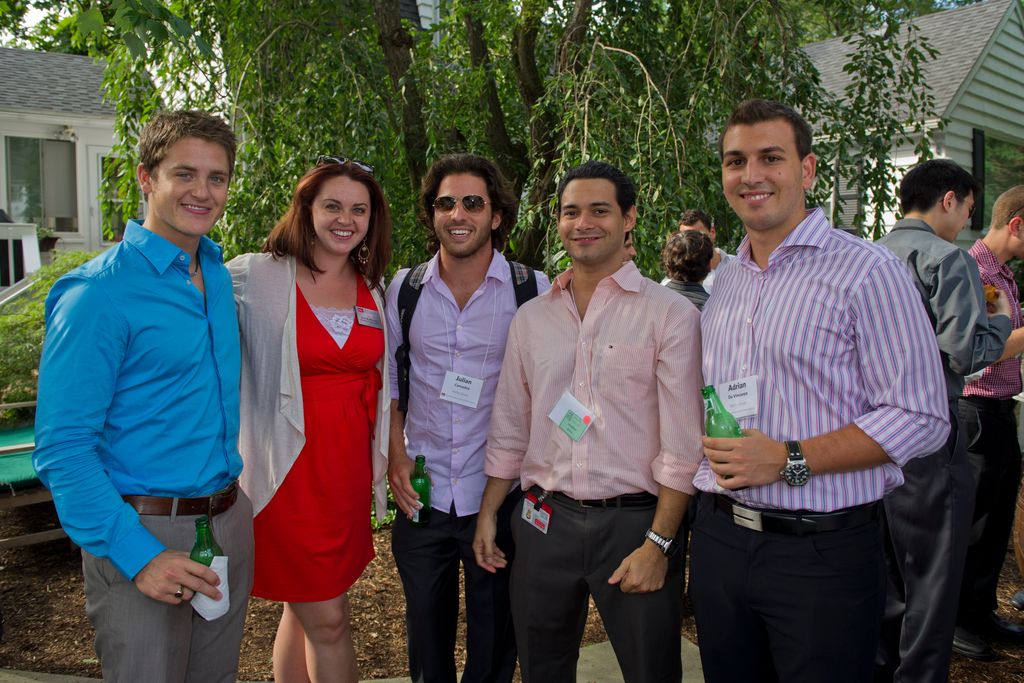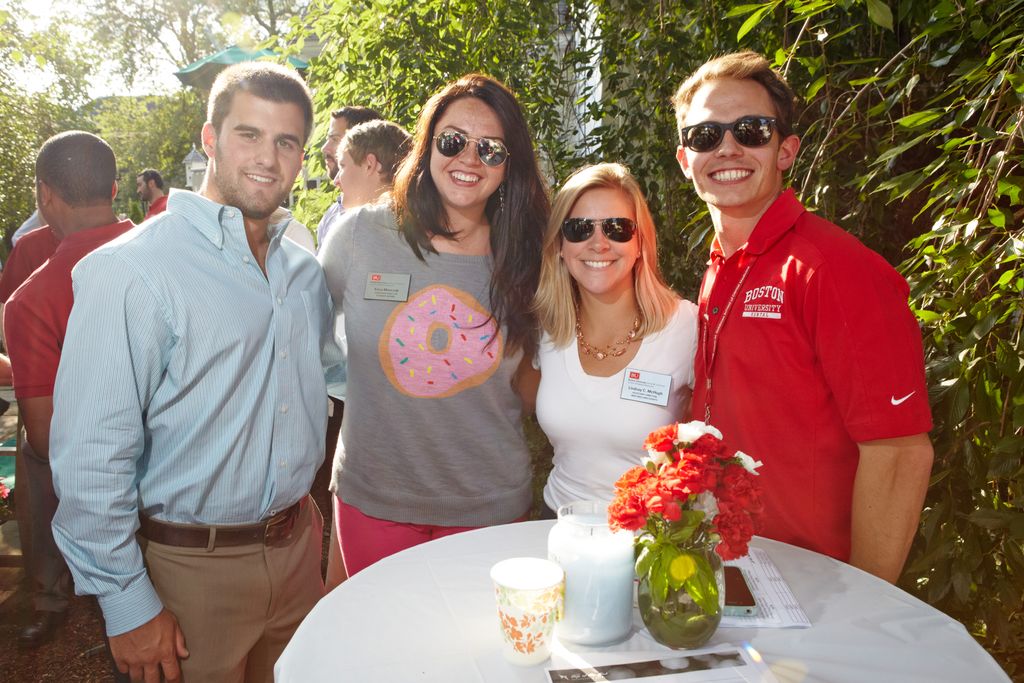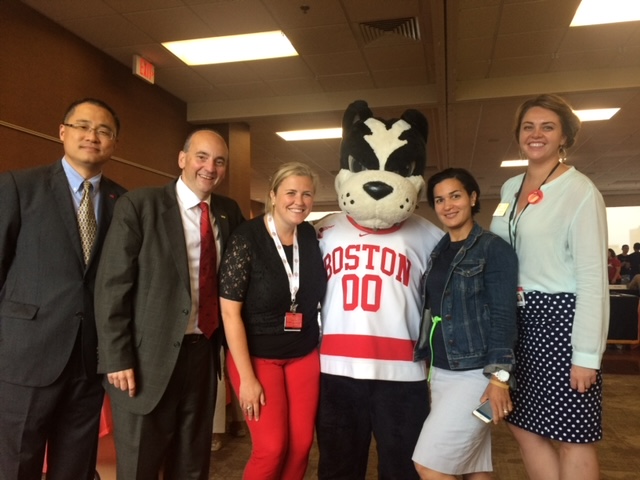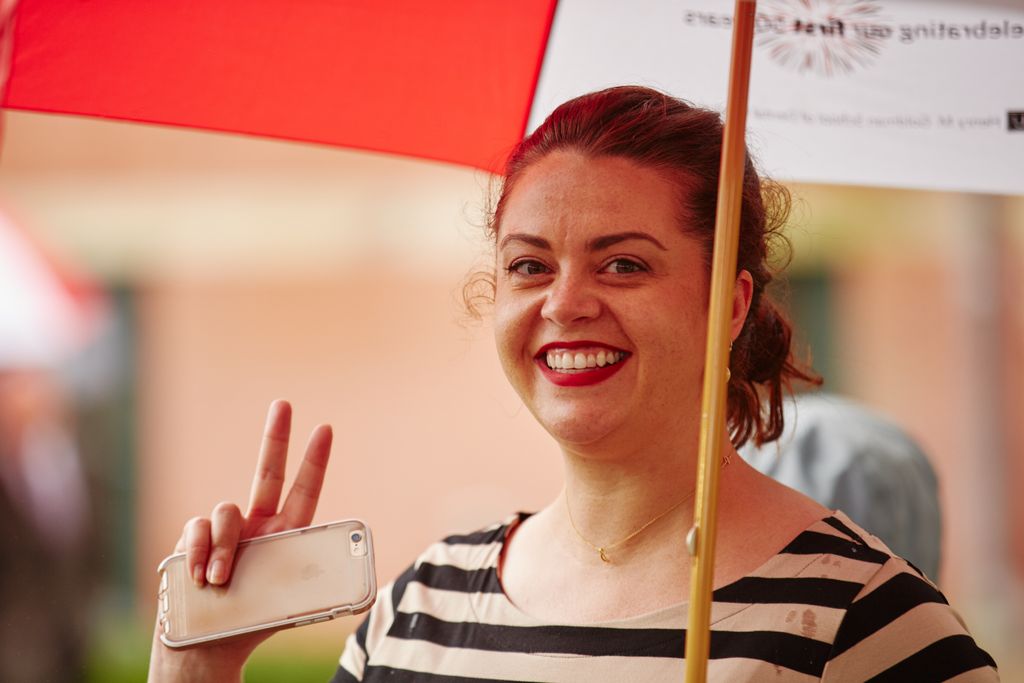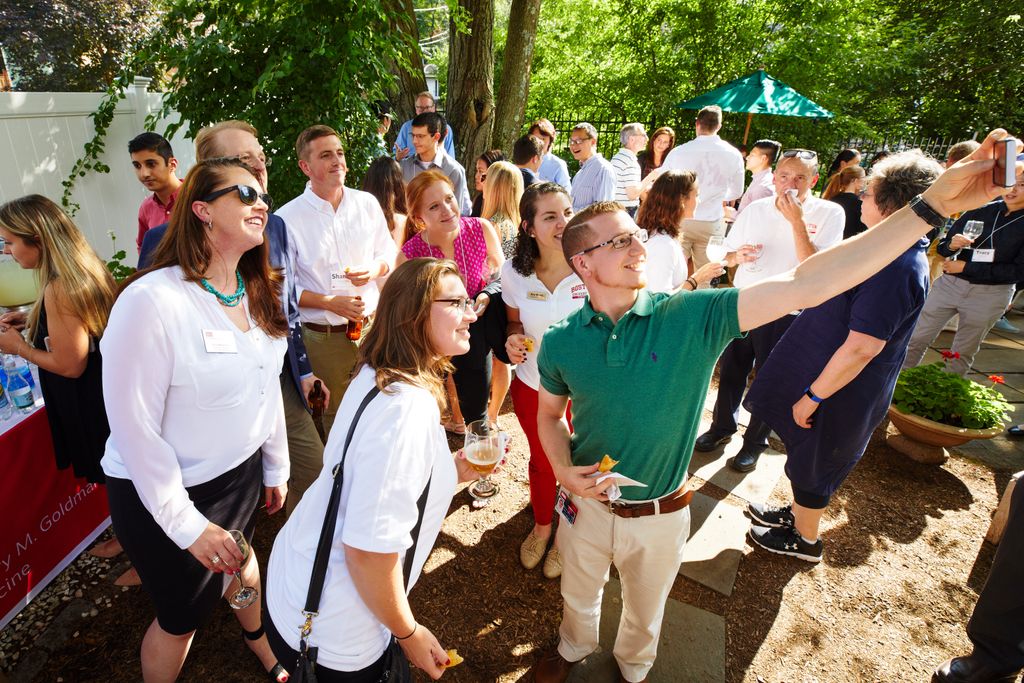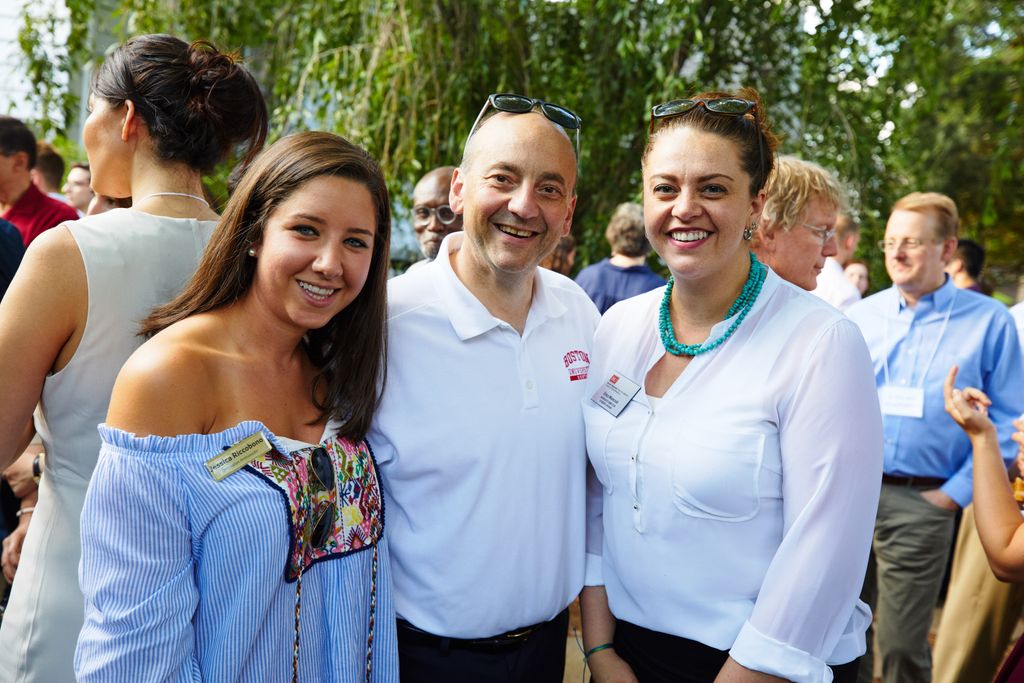“Behind the Scenes” of Predoctoral Matriculation Week: How Erica Stocks, GSDM Student Affairs Director, organizes the event-filled week for incoming DMD and DMD AS Students
Stocks is no stranger to Boston University as she is a double Terrier, graduating from the College of Communication in 2001 and Wheelock College of Education & Human Development in 2012. She has been working for GSDM since 2010, first as Student Affairs manager, now as student affairs director. (Photos from BU Dental Flickr of Stocks during GSDM Predoctoral Matriculation Week over the years, dating back to 2011.)
Getting into dental school is a phenomenal accomplishment—but then the hard work of doing dental school begins.
For the fourth installment of our ongoing “Behind the Scenes” series, we spoke with Erica Stocks, GSDM director of student affairs, about how she designed and planned the first week of dental school for this year’s incoming students, the DMD Class of 2028 and the DMD AS Class of 2026. This week, better known as Predoctoral Matriculation Week, is designed to prepare incoming DMD and DMD Advanced Standing students for a successful academic experience and to smooth their transition to life at GSDM.
“I feel the enthusiasm [from] students who are extremely excited to be here,” Stocks said. “They’ve worked exceptionally hard to get into dental school. There’s a lot of anxiety about this transition and we want them to feel supported and happy, So, we have to start it off right.”
Stocks is no stranger to Boston University as she is a double Terrier, graduating from the College of Communication in 2001 and Wheelock College of Education & Human Development in 2012. She has been working for GSDM since 2010, first as Student Affairs manager, now as director of student affairs.
As she prepared this year’s Predoctoral Matriculation Week, her goal was to maintain the right balance between informational sessions, panel discussions, instrument pick-up, fittings, social events, and everything else in between before the week’s culminating event: Professional Ceremony. For predoctoral students, Professional Ceremony officially welcomes them into the field of dentistry and GSDM. Students will recite the professional oath for the first time, in addition to receiving a Boston University pin that they will wear during their White Coat Ceremony and Commencement later in their GSDM journey.
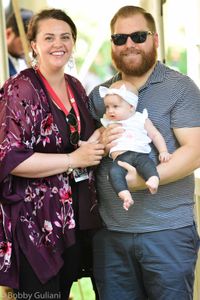
When finalizing the schedule, Stocks said she purposely tries to incorporate learning sessions along with what she calls “fun stuff.” For example, Monday, July 29 starts and ends with social events, with lectures, including the required Title IX and Ethics lectures, scheduled for the afternoon.
“There are so many moving pieces to make a week of programming, but it does take months [to organize],” Stocks said. “It’s like putting together a puzzle. I have sessions that are set that can’t move, [they] have to be where they are for logistical reasons. So the challenge becomes, how do I fit in everything in a way that flows, that feels like it makes sense, that doesn’t overburden students with too much information, and gives them that space to meet each other and connect?”
Stocks works with various departments/offices across GSDM and BU including Admissions, Meetings & Events, Communications & External Relations, Facilities, Clinical Affairs, Diversity, Equity, Inclusion, & Belonging, Academic Affairs, Student Wellbeing, Information Technology, and Development & Alumni Relations, to organize and facilitate the week.
“It takes a village, honestly,” Stocks said. “There’s so many things that have come together to make it happen.”
The biggest change this year is using a flipped classroom model, Stocks said, through which students can review information from presenters and offices on a Blackboard site before attending the in-person information sessions. Stocks is hoping this will allow students to be more active participants.
“These presentations can be a little bit shorter, and they can be more high level,” Stocks said. “They can really [focus more on] asking and answering questions since they’ve already had chance to review the information at home.”
The planning for this year’s Predoctoral Matriculation Week started last August, immediately following the conclusion of last year’s matriculation. Stocks said the Student Affairs team debriefed with all participating departments and sent an evaluation to students within two weeks of matriculation. She said it’s vital to get feedback as soon as possible while it is fresh in everyone’s minds.
Based on this feedback and additional research, Stocks started brainstorming for any new non-required lectures or panels. In recent years, she said there has been an increasing focus on promoting wellbeing resources, leading to the general resources session added in 2022, and a new workshop from the university’s Student Wellbeing Office added this year.
Stocks said social events like the Rainbow Reception (for LGBTQ+ students) and the BIPOC New Student Reception were added to the programming in 2021 to provide students a space to connect with peers, faculty and staff. (Any new student is welcome to attend the receptions if they choose to.)
“Every year, [the week] changes a little bit because our students coming to GSDM are different. We are seeing increase in first-generation students and students who are parents.” Stocks said. “They don’t have the same needs and come here with such a variety of life experiences. We’ve been through a global pandemic, which has changed so many people and society in so many ways, and that then changes what we focus on with our programming.”
After the initial debriefing, all things Predoctoral Matriculation Week were on hold until after Intersession. In January, Stocks said the Student Affairs team resumed their efforts by putting in room requests for each event for the week. Once the room requests were approved, the team worked on finalizing when, where, and how the programming was going to take place.
Starting around the end of February, Student Affairs begin to receive the names and contact information of students who plan to matriculate from Admissions. From there, Student Affairs started communicating to these students by first sending a welcome email. They increased communications as the new academic year got closer, giving students information on everything they need to do.
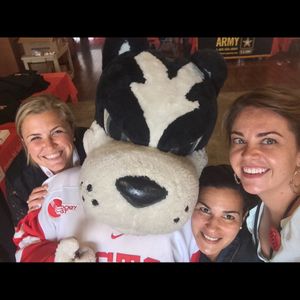
“For us, it’s creating that connection,” Stocks said. “So that then they do arrive here, they feel like they’ve been supported, they have the information, and giving them space to also ask us questions.”
Once there was a set schedule for the week, the Student Affairs team uploaded the itinerary to an app called Guidebook. According to Stocks, the team used to print copies of the materials for students but found that approach to be unsustainable and impractical.
“Guidebook has proved to be a really nice thing because it’s easier for our staff to maintain,” Stocks said. “We can go and make schedule updates and add content and links and those updates can happen and pretty much in real time.”
The Student Affairs staff couldn’t survive the week without the matriculation ambassadors and coordinators (29 students total), Stocks said. The ambassadors consist of current GSDM predoctoral students who apply and are selected to help shepherd new students through matriculation weeks. The program started in 2014 and has expanded to include two roles: matriculation ambassadors and matriculation coordinators.
“We have a small team and we have so much programming and so many students, we really felt the matriculation ambassadors was an opportunity to help support the staff, professional staff, but then also providing current students with a peer mentorship and leadership development opportunity,” Stocks said. “Incoming students can hear information from professional staff but hearing it from a fellow dental student who’s their peer, the information [may] hit a little bit differently.”
It is a lot of collaboration for one week, but Stocks said it’s always worth it. Her favorite memories are seeing new students connecting, watching friendship form, and seeing students recite the oath for the first time. These may be small moments, but it shows the big picture that comprehensive programming is beneficial.
“When we’re creating programming, particularly matriculation, [we ask ourselves,] what’s the impact that it’s going have on students? Why is it important to their educational experience and to them as people?” Stocks said. “It’s all very intentional.”
